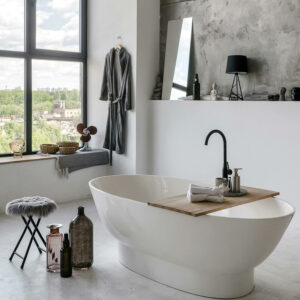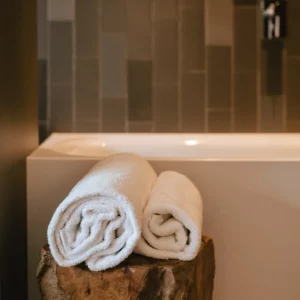
Investing in the future means placing the right value on resources; Albogroup works for careful cosmetics.
We believe that the level of service and attention to economy can also coexist in quality reception, constantly improving hotel amenities to ensure an exceptional experience for our guests.
Water consumption in hotels: data and implications
Studies speak for themselves: water consumption is much higher in hotels than in private homes. If at home we consume an average of 250 litres of water per person, the figure becomes more than double in a hotel.
As many as 645 litres per capita can be explained in relation to the services that the accommodation facility provides; wellness centres and swimming pools are just some of the areas that require the most water. The ENEA data focus on one of the thorniest aspects in terms of both cost and impact on the environment.
Strategies and tips to reduce water consumption in hotels
Water is the real gold of the near future. The principle is well understood by hotels that are increasingly aiming in the direction of green resource management. Optimisation is open on several fronts: it starts with technologies for saving but also extends to the modification of routines.
Albogroup contributes to cutting waste by offering the solid cosmetics alternative. Reduced costs in handling and transport go hand in hand with better optimisation of water and product. This is a small but valuable step; here are some effective steps.
Towards a sustainable future: solid shampoos, conditioners and shower gels for hotels
The past is just a memory, the liquid cosmetics of tradition make way for solid innovation. A true concentrate of natural ingredients, solid cosmetics are the solution that promises greater convenience with less water consumption.
More than 40 years’ experience in the field and active, ongoing modernisation have resulted in the solid cosmetics lines from Albogroup. Conditioners and shampoos, but also bath and shower gel and intimate hygiene solutions belong to an entirely dry offer.
This translates into optimised consumption, longer life and water savings. This is the secret behind the all-green success of the Solid.O Original line.
Contact us for more information on services
Use of dispensers
A sound theory only works if it supports practice in everyday life. It is enough to analyse a simple – and almost trivial – detail: what is the product waste and impact of disposable cosmetics in liquid form?
Opening a packet of liquid detergent means wasting the residual part, the part that will never be used, and losing some of it on the surfaces. This solution, besides being less practical, also proves to be more expensive in terms of cleaning.
Then there is the plastic container, a residue that can increase costs in terms of economy and impact on the environment. The dispenser offers the solution that can increase convenience and reduce water consumption itself; the simple refill triggers a virtuous cycle.
Encouraging the re-use of towels
There is water consumption visible to all but there are many other steps not always considered. The laundry department is one of the areas most involved in the water impact of hotel reception.
Incentivising the re-use of towels is the step that can also make an important contribution to cutting water consumption; to do this, all that is needed is to raise awareness through a few simple guidelines.
Providing a rack for towels to be washed and towel racks for those that can be reused, these are useful steps to optimise consumption in the laundry.
Pay attention to maintenance
If a state-of-the-art shower head can reduce the impact from 11 to 5 litres of water per minute, the costs of a leak in the system are likely to be much higher. Ensuring that systems are fully operational ensures their proper functioning but also helps to reduce waste.
Proper preventive management must not neglect the periodic check of drains and taps; it is in fact the smallest leaks that remain silent for too long. Renovation allows innovation, aiming at systems that are also more efficient in monitoring resources. Replacing an old tap can make way for automatically controlled solutions, savings being the most direct effect.
Education and involvement: the role of information campaigns
Raising awareness rhymes with saving, information plays an active role in optimising resources. Water is an important commodity, as long as everyone recognises its true value.
The most direct deduction is aimed at customers, where the use of brochures and practical tips can induce greater attention to water issues. Awareness-raising must, however, also culturally embrace the employee, offering the theoretical and practical tools for a less consumption-intensive management. Water is the real challenge in the near future, everyone can be an actor in it.
Investing in the future with environmental responsibility and sustainability is a commitment that we at Albogroup take very seriously. By introducing innovative practices such as solid cosmetics and adopting water-saving strategies, we have shown that it is possible to provide a quality service while respecting the environment and its precious resources.
Our vision goes beyond simply reducing consumption: we are committed to creating an accommodation experience that educates and engages guests and staff, promoting a profound cultural change towards sustainability.



